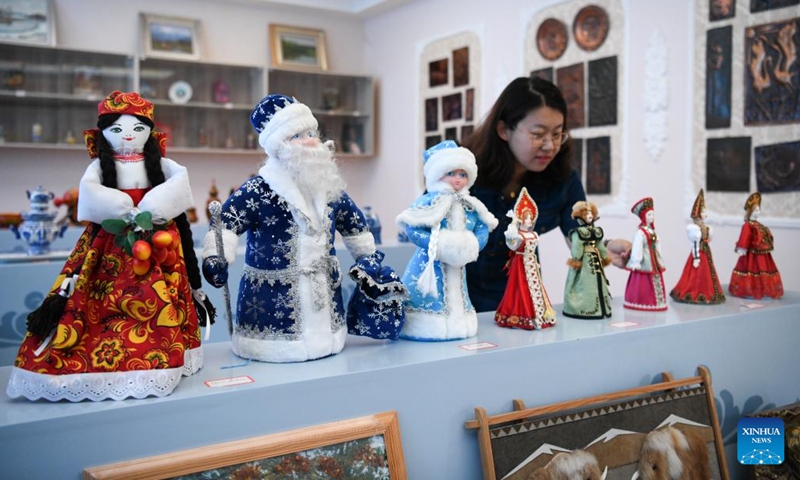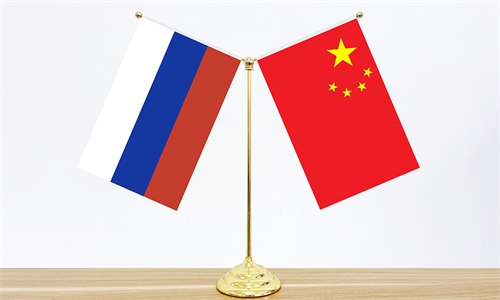
This photo taken on Aug. 9, 2023 shows a Russian culture center of Heihe University in the city of Heihe, northeast China's Heilongjiang Province. Chinese Heihe city faces Russia city of Blagoveshchensk across the Heilongjiang River, known in Russia as the Amur River. In June last year, the Heihe-Blagoveshchensk cross-border highway bridge over the Heilongjiang River opened to traffic.(Photo: Xinhua)
The topics of “Russians having breakfast at Heihe city’s morning market” and “eating steamed buns with beer” have recently gone viral across China’s social media platforms.
With the resumption of the China-Russia cross-border visa-free policy for tour groups at the end of September, cross-border tourism between China and Russia is now picking up pace, and the border town of Heihe in Northeast China's Heilongjiang Province is witnessing a surge in tourists.
“Heihe may not be an international metropolis, but its morning market certainly has an international vibe, as the street signs are bilingual in both Chinese and Russian, and even street vendors selling steamed buns can manage some basic Russian conversation,” a Heihe resident surnamed Liu told the Global Times on Sunday.
A one-way boat ride takes less than 10 minutes and Russian residents can have breakfast in Heihe and then continue with their onward travel itinerary, Liu said.
In addition to the morning market, they also enjoy shopping at local malls, where they purchase a variety of light industrial products, including shoes, hats, clothing, underwear, socks, and even mink coats, another Heihe resident Meilin told the Global Times on Sunday.
Home appliances are also among the categories that Russian tourists like to purchase. In addition to shopping, some tourists come to China for medical treatment, dental work, and other healthcare services, Meilin said.
Chinese group tourists heading to Russia have also increased. A manager surnamed Li from a local travel agency in Heihe told the Global Times that during the Golden Week holiday from September 29 to October 6, they experienced a small peak in tourists traveling to Russia.
“Even though it’s not the traditional peak season, we receive many inquiries and tourists heading to Russia on a daily basis,” Li said.
The resumption of the China-Russia visa-free policy at the end of September this year is not for individuals but for tourist groups too, according to the Heihe Cultural Radio, television and Tourism Bureau.
During the recent eight-day Golden Week holiday, Heihe welcomed more than 600,000 visitors, marking a recovery equal to 184.9 percent of levels seen in 2019. The number of inbound and outbound visits reached 14,683, with consecutive daily totals exceeding 2,000 trips, according to media reports.
Global Times


